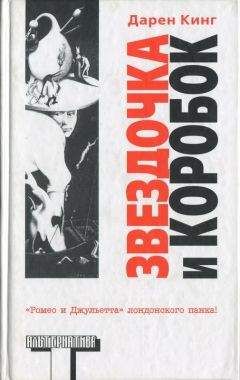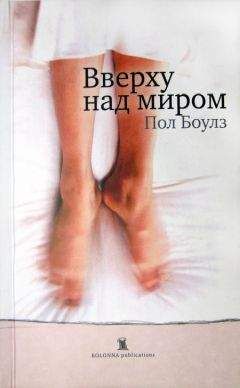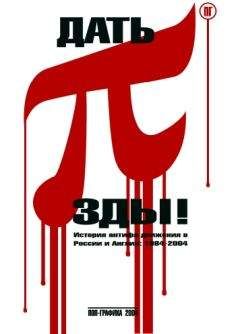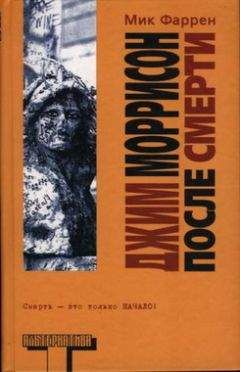Chuck Palahniuk - Stranger Than Fiction (True Stories)
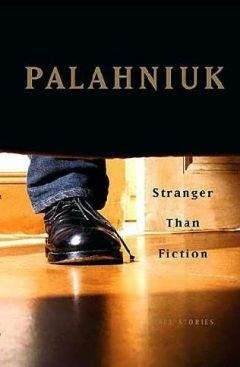
Скачивание начинается... Если скачивание не началось автоматически, пожалуйста нажмите на эту ссылку.
Жалоба
Напишите нам, и мы в срочном порядке примем меры.
Описание книги "Stranger Than Fiction (True Stories)"
Описание и краткое содержание "Stranger Than Fiction (True Stories)" читать бесплатно онлайн.
"Full of wonderful moments…Palahniuk's voice is so distinctive and intimate-he writes as though he is recounting a great story to a close friend." — Los Angeles Times
"Step into Palahniuk's dark worldview and watch for what crawls out. These stories are true to him and no one else." — The Oregonian
“One of the oddest and most oddly compelling collections to come along for some time.” —The Milwaukee Journal Sentinel
“In Chuck Palahniuk’s world, the ride is fast, often disturbing, and there is never any holding back.” —The New Orleans Times-Picayune
“Eccentric, idiosyncratic, and often entertaining.” —The Onion
"Priceless grace notes from an exceptionally droll and sharp-eyed observer." — The New York Times
“Rarely does a collection of essays continually resonate with a main theme and accumulate a weight that would lead you to call it a great book. . This is a pretty great book.” —The Seattle Times
"The book's lurid appeal rests largely on being let in on Palahniuk's secrets, the raw material for much of his fiction. . Acts that give spice to his novels are made more menacing when encountered in the real world." — Black Book
It was a torn heart valve.
Lanzatella says, "To make a long story short, I went in on Sunday night and they told me on Tuesday of that next week that I'd need immediate open-heart surgery. The only thing they could surmise is that it was from wrestling. One of the top surgeons in the world, the one who did my surgery, said he'd never seen an injury like it in his career. If you tear a valve like that, the analogy is hitting the steering wheel of a car, head-on, at sixty miles an hour."
The heart valve was torn in three places-in a V shape, with another tear horizontally across the midpoint of the V-forcing Lanzatella's heart to pump five times faster than normal to keep up.
This was in February of 1997. Phil Lanzatella had qualified for the Olympic trials every year since 1980, when he was on top, still a teenager, but already a world-class wrestler, dating Water Mondale's daughter and headed for the Olympics in Moscow. The Olympics we boycotted that year. Now, for Phil the options were a mechanical valve, a pig heart valve, or a recovered human valve. The recovered valve was the choice that would let him still compete.
After that, he started helping coach at local colleges and high schools. He started feeling good, getting a little more active.
"I didn't tell my wife. I came home one day and said, 'Hey, Mel, what do you think about me wrestling? and she said, 'Yeah, okay, if you want to be single. I'm not going through that again. But she got used to the idea."
They've been married fifteen years.
Finally, Melody Lanzatella said, "If you're going to do this, then you're going to win."
So far, Phil hasn't. He didn't make it in the South Regionals.
"I took tenth in the Nationals, top eight qualifying, in Las Vegas. In Tulsa," he says, "my hotel van broke down, and I missed weigh-ins. I got stuck on the highway. So this is really it. This is it, literally."
So for Phil Lanzatella, thirty-seven, this is his last shot at the Olympics after decades of training and competition.
It's the last shot for Sheldon Kim, twenty-nine, from Orange County, California, who works full-time as an inventory analyst and is here with his wife, Sasha, and their three-year-old, Michaela, and who is busy right now trying to drop two extra pounds in the last half-hour before weigh-ins are over.
It's the last shot for Trevor Lewis, thirty-three, the comptroller at Penn State with a master's degree in engineering and architecture, who's here with his father.
It's the last shot for Keith Wilson, thirty-three, who has a baby boy due in two weeks and practices two or three times every day as part of the army's World Class Athlete program.
It's the last shot for Michael Jones, thirty-eight, of Southfield, Michigan, whose first film project, Revelations: The Movie, is about to begin production.
Jones says, "My body just can't go through another four years of wrestling guys like this. Like I say, my knees are starting to buckle. My back is starting to really get to me now. I don't want to get to around fifty years old and be bent over with a cane. This will definitely be my last Olympics."
It's the last shot for former college wrestler Timothy O'Rourke, forty-one, who last wrestled in 1980 and says, "I saw something on the Internet and thought, 'What the hell, I'll give it a shot.»
Despite everything at stake, the mood is less like a fighting tournament than a family reunion.
Keith Wilson is here from the Olympic Training Center in Colorado Springs to compete as a 76-kilogram Greco-Roman wrestler.
"I don't hold anything in," he says. "I'm happy all the time. And if I get stressed, I have an okay outlet. I can just come here and beat the shit out of someone and I won't get in trouble for it. When you wrestle, it's for blood, but when you walk off the mat, you're friends again."
"It's almost like a family," says Chris Rodrigues. "You know everyone. I know everyone. You meet people you know, and everyone gets to know each other, hanging out at the big national tournaments. The Junior Nationals and the Nationals, every year. It's like a big connection to everyone. I know people in Moscow and Bulgaria. I know people around the world."
His father, David, adds, "That fraternity he's part of, when he goes to Michigan and gets a business degree and maybe goes out, and maybe he never wrestles another day in his life, but he'll run into a guy who wrestled during the same period of time he did, and that camaraderie will always be there."
Sean Harrington says, "When you meet another wrestler that you don't know, say you're on a trip, it's like you hear about people who own Corvettes, you always wave to each other. It's the same thing with wrestling. You have a camaraderie there because you know what the other guy's been through."
"It's just focusing the energy for the match," says Ken Bigley. "When we're on the mat, we want to just beat the piss out of each other, but when we're off the mat we know what each other's going through because we've been there. As much as you focus on beating your opponent up, as much as you're enemies on the mat, as hard as you're going to hit him, once you're off the mat we're not violent people, we just like a violent sport."
Nick Feldman calls it "elegant violence."
During the matches, wrestlers lie around on the edges of the mats and watch. Wearing baggy sweats. They stay together, arms around each other, or locked in practice holds, in the kind of laid-back closeness you see only in men's fashion advertising anymore. Abercrombie & Fitch or Tommy Hilfiger magazine ads. Nobody seems to need "personal space." Nobody throws off "attitude."
"You're brothers," says Justin Petersen, who at seventeen has a 4.0 GPA and runs his own Internet marketing business. "We eat together. When you have lunch, it's with the other wrestlers, and all you do is talk about how hungry you are and you can't wait until after that weigh-in so you can eat this or that. How many tenths of a pound you're going to lose in a day."
Nick Feldman says, "As a whole, wrestlers are more comfortable with themselves. There's not too many egos getting blown everywhere because that's just all smoke. It's anti-NBA, pretty much."
"Hell," says Sara Levin. "Going through hell together does it. You know that a guy in Russia is going through the same thing that this guy here is, trying to cut this much weight. They've got to do the same thing to get on the mat. There's a bond in that we're not a glamorous sport. We're not high-profile, money. You know that you're down and dirty."
Like brothers, they even look alike. Many with broken noses. Cauliflower ears. Most have a kind of pulpy, boiled look from sweating hard and landing on their faces. They're all muscled like an anatomy chart. Most seem to have heavy brows.
"In our wrestling room, we usually have the heat high," says Mike Engelmann, whose long eyelashes are in contrast to his brow. "What that does is it kind of flushes your body. You sweat all of it out. You drink more and sweat it out again, and it kind of sinks the cheeks and the eyes in, a little bit, and the forehead's all you've got left sticking out there. I kind of like the look, because it shows you're working hard."
This brotherhood thing seems to end when the ref blows his whistle.
On Saturday, despite all the years of preparation, the freestyle tournament is all over, fast.
Joe Calavitta loses and is out of the Olympics.
In Junior competition, Justin Petersen wins, and as soon as he's off the mat he throws up.
The few people in the stands cheer, Sheldon Kim's wife, Sasha, saying softly, over and over, "Go, Shel. Go, Shel. Go, Shel…"
"When you're in there, one-on-one with somebody," says Timothy O'Rourke, "you can't even hear what's going on in the stands."
O'Rourke is pinned in five seconds.
Sheldon Kim loses.
Trevor Lewis wins his first match, but loses his second.
Chris Rodrigues wins his first match.
Sheldon Kim's younger brother, Sean, loses to Rodrigues.
Mark Strickland goes against Sean Harrington, with Lee Pritts coaching from a corner. Behind in the match, Strickland calls a time-out, screaming at Pritts, "I'm going to break his ribs!" His face twisted as if he's already crying.
"The toughest guys I know cry after matches because they put so much into it," Joe Calavitta says.
Lee Pritts says, "You become so close with a workout partner that they're like your own blood, and if they go out and lose a match, lose a big match, then you've just had your heart torn out."
Strickland loses to Harrington.
"I hate to see him lose," Pritts says. "I've seen him have so much success, that when he loses, it's crushing."
Pritts wins his match.
Chris Rodrigues wins his second match.
Ken Bigley wins his first and second matches, but loses his third.
Rodrigues loses his third match and is out of the freestyle tournament.
Sean Harrington and Lee Pritts are going to the Olympic finals in Dallas.
A medic refuses to say how many muscles are pulled, bones broken, joints dislocated. All that's, he says, "highly confidential."
And the freestyle tournament is over for another four years.
That night, in a tavern, a wrestler who didn't win talks about how he was screwed over by the ref in favor of a local hero, and how USA Wrestling should import impartial refs from other areas. This wrestler talks about going to Japan to earn $20,000 in an "ultimate fighting" match, then using the money to create a joint marketing venture between topless clubs and amateur fighting events.
"Many of these guys do the ultimate fighting because it's good money," says Sara Levin. "We have Olympians who are doing it. Kevin Jackson's done it. Half of our Greco Olympic team from 96 does it. I'm not thrilled that it's the professional outlet that our guys have, but it's their only option."
The wrestler in the tavern says he can sneak the money back from Japan and not pay any taxes. He plans to avoid state laws about professional fighting by paying fighters under the table. He signs autographs for little boys. He's huge and nobody disagrees with anything he says. And he talks and talks.
The next morning, Sunday, a Marine recruiting Humvee is parked outside the Young Arena, blaring heavy-metal rock music from giant speakers as two recruiters in Marine fatigues stand nearby.
Inside the arena, the mats are laid on top of each other, double-thick, in preparation for the Greco-Roman tournament.
"A lot of people are scared of Greco," says Michael Jones. "It took me a lot of years to get into it, because I was scared of it. Because of the throws. You got some serious throws."
Phil Lanzatella suits up to wrestle, the scar from his open-heart surgery running down the center of his chest. He explains how at least the third and final heart valve tear probably happened while he was practicing Greco-Roman wrestling with Jeff Green at the Olympic Training Center in 1997.
"I weighed about two-seventy and Green's probably about two-sixty, so we totaled about five-thirty, coming through the air at I don't know how many miles an hour. Twisting and turning. And we got next to some smaller guys. That space was tight. And they put their hands and feet up," he says. "And we came out of the turn and through the air, and I landed right on the guy's foot."
Lanzatella says, "I felt it. I knew what had happened, but I didn't think much of it. I'd taken worse shots than that."
Today, there's some talk about the darker side of wrestling, how someone snuck a camera into the weigh-ins at the Midlands tournament a few years ago and the best wrestlers in the world ended up naked on the Internet. People talk about how amateur wrestlers have been stalked by obsessed fans. Called late at night. Harassed. Killed.
"I know there was a lot of talk," says Butch Wingett. "DuPont was hot for Dave Schultz for a long time."
Former college wrestler Joe Valente says, "This sport gets so much disrespect. People think it's a bunch of homo men trying to feel each other up."
As the Greco competition starts, there's no one in the stands.
Keith Wilson wins his first match, loses his second, but will still go to the Olympic finals because he's already qualified in the Nationals.
Chris Rodrigues wins a single match and will go to the Olympic finals as a Greco-Roman wrestler. The only high school student to qualify.
With his father after the match, he says, "This is just great. I'm still in high school. I get to go back home and tell all my friends I'm going to the Olympic trials in Dallas."
Phil Lanzatella wins his first match three-zero.
His second match, Phil ties zero-zero in the first period, then loses a point to his opponent in the second period and loses the match in overtime.
Already the crowd of wrestlers is thin. People are getting out, catching planes. Tomorrow is Monday and everybody has to be back at work. Sean Harrington as a painting contractor. Tyrone Davis as a water-plant operator for the town of Hempstead, New York. Phil Lanzatella as a spokesman for the company who installed his heart valve and as an advertising account rep for Time Warner.
Lanzatella sits at the far side of the tournament floor while the last consolation matches wrap up. His wrestling shoes sit a few feet away.
"I got what I deserved," he says. "I haven't been training hard enough. I have different priorities now. My wife. My kids. A job."
He says, "Last time these shoes will see action."
He says, "Maybe I'll take up golf or something."
Sheldon Kim says, "This is probably it for me. I have other priorities. I have my little girl. After this, that's it for me. I've gotten enough out of the sport to know what I've accomplished."
Wrestlers leaving "the family" to concentrate on their own.
Now almost no one is here at the Young Arena.
"Wrestling has a kind of cult following," says William R. Groves, who's driving back to Ohio State University tonight, to finish the last year on his Ph.D. in physics. "Your friends come. Your family comes. And I think a lot of people view wrestling as a boring sport."
Justin Petersen says, "It is a dying sport. I've heard some people say that boxing's a little bit worse, but wrestling's right there behind it. There's a lot of colleges dropping their wrestling programs. The high school popularity is going down. It doesn't have a lot of years left, that's what people say."
"It's dying at the collegiate level most of all," says Sean Harrington. "But I've read that at the kid level, the young children, it's more popular than ever. There's just lots of kids getting involved in wrestling because parents know what it can be to their children."
He says, "It's a hundred percent Title IX."
In the twenty-five years since the federal law that requires colleges to offer equal sports opportunities for men and women, more than 462 schools have dropped their wrestling programs.
"Title IX, that's a major factor," says Mike Engelmann. "All those colleges are getting screwed out of their wrestling programs because we have to have an equal amount of sports. I don't want to sound like a sexist or anything, but I really don't believe in it."
Подписывайтесь на наши страницы в социальных сетях.
Будьте в курсе последних книжных новинок, комментируйте, обсуждайте. Мы ждём Вас!
Похожие книги на "Stranger Than Fiction (True Stories)"
Книги похожие на "Stranger Than Fiction (True Stories)" читать онлайн или скачать бесплатно полные версии.
Мы рекомендуем Вам зарегистрироваться либо войти на сайт под своим именем.
Отзывы о "Chuck Palahniuk - Stranger Than Fiction (True Stories)"
Отзывы читателей о книге "Stranger Than Fiction (True Stories)", комментарии и мнения людей о произведении.





